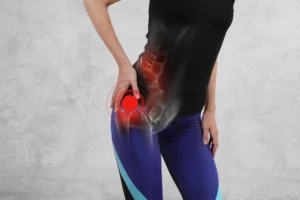Orthopaedic surgery
Part 1: Preparing for sugery
At Total Physiotherapy we see people following a range of different operations – knee or hip arthroscopies, knee reconstructions, hip and knee replacements, shoulder tendon repairs, surgical repair of fractures and more. Whether the surgery is for a longstanding problem such as a joint replacement for arthritis or an unexpected operation for a fracture or ligament rupture, there are a few common principles to achieving the best results.
Key questions to ask your doctor before surgery:
- What will the surgery involve?
- Are there any risks?
- Are there any exercises I can do before surgery that my physio can teach me?
- How long will I be in hospital?
- Will I need crutches, a sling or brace and for how long?
- How long before I can return to work, driving, household activities?
- What are the steps and time frame for my rehabilitation?
- Can I expect to return to my pre-injury level of activity/sport?
If your expectations are not in line with those of the surgeon (and the physio) you might be disappointed.
Handy hints for immediately post-op:
Remember that while the operation is designed to help you, it is in fact a new source of injury (and pain) due to the incision that needs to be made and the work done on the inside.
- Adequate pain relief is key in the early stages. Don’t try to “tough it out” – take the pain medication prescribed at regular intervals.
- Manage swelling – using rest, elevation and sometimes ice.
- Take it easy – allow the body to heal by resting as needed. Don’t decide that time off work for surgery is an opportunity to catch up on some shopping or house maintenance!
Part 2: Post op rehabilitation
Setting goals:
Prior to your surgery you will find out the length of your rehabilitation. Particularly in long term rehab such as for an ACL reconstruction, it is useful to work with your physio to break down the ultimate goal of return to sport into shorter term goals so you can see improvements along the way.
Time frames for achieving goals are guidelines and will vary between individuals. Depending on the procedure, length of rehab might vary from a few weeks to 12 months.
Broadly speaking, rehab from most procedures follows similar goals:
- REGAIN NORMAL MOVEMENT
Following a joint replacement this is encouraged from the very early days. Ligament or tendon repair will mean restricted movement until sufficient healing has occurred – overdo it too early and the strength of the repair will be reduced.
- REGAIN/IMPROVE STRENGTH
Joint replacements for arthritis often mean considerable muscle strength has been lost over a number of years. Regaining strength means performing specific exercises – not just walking.
- MAINTAIN FITNESS AND OVERALL BODY STRENGTH AND FLEXIBILITY
When the surgery restricts your usual exercise, you may need to look to other forms of exercise to maintain fit-ness e.g. Swimming may be possible before running following knee surgery.
Pilates can help maintain core strength. At Total Physiotherapy your physio or our exercise physiologist, Jo Lindsay, can help set you a suitable programme.
- RESTORING PROPRIOCEPTION
An area often overlooked is retraining balance and the ability for the operated area to “know where it is in space”. This can be from the simple task of knowing where your foot is when going downstairs to walking on uneven ground or landing on one foot to take a pass in netball.
- FUNCTION SPECIFIC EXERCISES
This will depend on the goals you initially set. Following a knee replacement it may be to walk up a flight of stairs unaided. Return to sport requires breaking down the skills required eg. Side to side agility for many sports, overhead strength and control in throwing sports.
The final stage of rehab is often overlooked as you often feel “back to normal” yet out on the sports field some specific range or strength is missing. Your physio can work with your coach to target these areas.
AND REMEMBER:
- Set achievable, timely goals – Research tells us that believing in your ability to achieve your goals contributes to a successful outcome from surgery.
- Stay positive It can be difficult to stay positive 100% of the time as you recover. There will be some times when you seem to take two steps forward and one back – discuss any setbacks with your physio so you understand why they may occur
and how to overcome them.
- Accept support from family, friends, team mates as this is another factor that is associated with good out comes.


